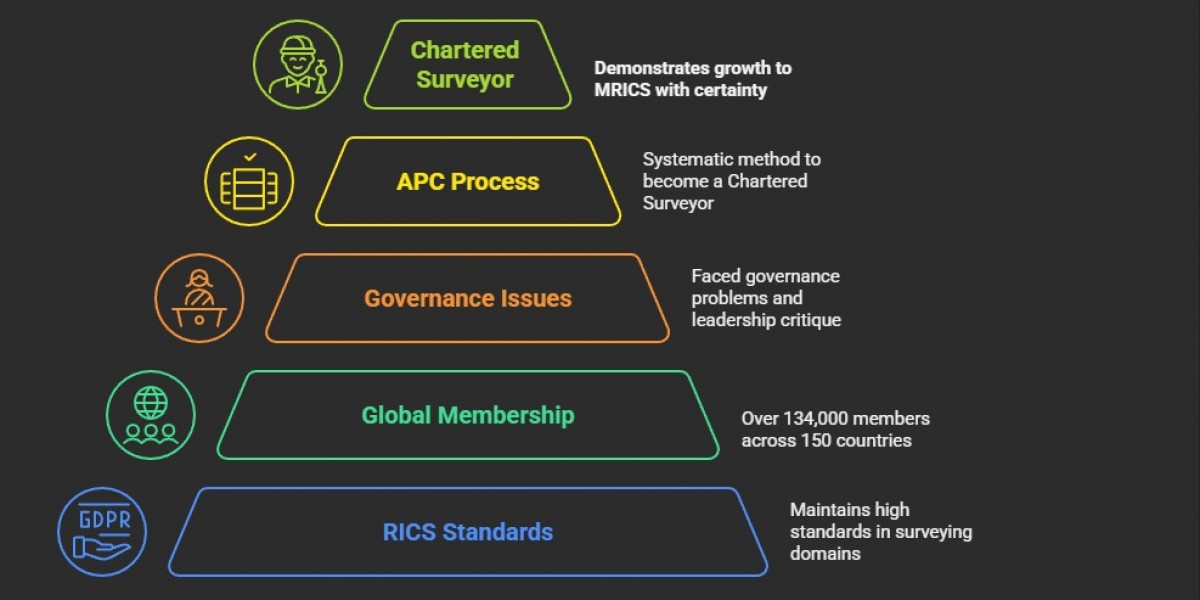Becoming a member of the Royal Institution of Chartered Surveyors (RICS) is widely regarded as a significant milestone for professionals in land, property, construction, and infrastructure. Whether you are starting your career or looking to advance it, understanding the RICS Assessment process and the benefits of RICS Membership can help you plan your professional journey with confidence.
What Is RICS?
The Royal Institution of Chartered Surveyors (RICS) is a globally recognized professional body that sets standards in the built environment. Its qualifications and designations—such as MRICS and FRICS—carry strong credibility across industries and countries.
RICS Assessment: What You Need to Know
The RICS Assessment is the formal process candidates must complete to achieve RICS professional status. The most common pathway is the Assessment of Professional Competence (APC).
1. Types of RICS Assessments
RICS offers several routes depending on experience and background:
a. APC (Assessment of Professional Competence)
Designed for graduates and early-career professionals
Typically takes 24 months
Requires a combination of experience, structured training, and case studies
b. Senior Professional Route
For experienced professionals (usually 10+ years)
Focuses on leadership, achievements, and technical expertise
c. Specialist Assessment
For niche areas of practice, such as building conservation or valuation review
d. Academic Assessment
For individuals with significant academic experience rather than industry practice
2. What the RICS APC Assessment Includes
The APC includes several components:
● Logbook / Experience Record
Candidates must document their professional experience across technical and mandatory competencies.
● CPD (Continuing Professional Development)
At least 48 hours of annual CPD is required, proving the candidate is continuously improving their skills.
● Case Study
A 3,000-word report focusing on a real project demonstrating problem-solving, technical knowledge, and ethical decision-making.
● Final Interview
A 60-minute panel interview where assessors evaluate competency, ethics, and practical understanding.
Passing the RICS Assessment results in the award of the MRICS designation.
RICS Membership: Levels, Benefits, and Requirements
Achieving RICS Membership means joining an elite network of globally recognized professionals.
1. Levels of RICS Membership
● Associate Member (AssocRICS)
Entry-level membership
Suitable for technicians or those with limited experience
● Chartered Member (MRICS)
Achieved by passing the APC or an equivalent assessment
Globally recognized professional status
● Fellow (FRICS)
Senior professional level
Awarded to those who have made a significant contribution to the profession
2. Benefits of RICS Membership
● Global Recognition
RICS members are respected internationally, opening opportunities worldwide.
● Professional Credibility
Demonstrates integrity, ethics, and technical competence.
● Career Advancement
Many employers require or prefer RICS-qualified professionals.
● Access to Industry Insights
Exclusive research, networking events, and CPD opportunities.
● Commitment to Ethical Standards
Members must follow the RICS Rules of Conduct, ensuring professionalism and trust.
3. Requirements for RICS Membership
Requirements vary depending on the route, but typically include:
Relevant academic qualifications
Professional experience
Completion of a competency pathway
A successful assessment or interview
Conclusion
The journey to becoming an RICS professional involves understanding both the RICS Assessment process and the advantages of RICS Membership. With its strong global reputation, RICS membership can significantly enhance your career prospects and professional credibility. Whether you are just starting out or are an experienced professional aiming higher, RICS provides a structured pathway for growth, recognition, and success.








